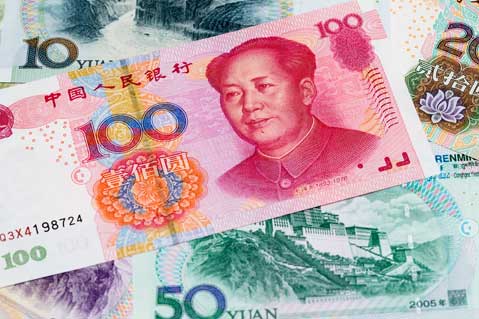May 03, 2016
U.S. to Monitor China Currency for Unfair Advantage
A new report from the U.S. Treasury places China under scrutiny for devaluing its currency to gain an unfair trade and economic advantage. The newly-created monitoring list is part of the Treasury’s semi-annual report to Congress where it examines the foreign exchange policies of the country’s major trading partners. Four additional countries were included on the list: Japan, Korea, Taiwan and Germany.

The report states that none of the countries are manipulating their currency (a charge the U.S. government hasn’t leveled in over 20 years), but that the countries in question met two of three criteria to merit further monitoring.
“The Administration shares strongly the objective of taking aggressive and effective actions to ensure a level playing field for our workers and companies,” the report said. “The President has been clear that no economy should grow its exports based on a persistently undervalued exchange rate, and Treasury has been working aggressively to address exchange rate issues bilaterally.”
Last August China devalued the yuan (also known as the renminbi, or RMB) by a record amount which, among other effects, helped to preserve the country’s favorable export conditions against the strong U.S. dollar. (Devalued currency makes it cheaper to import goods.) However, foreign market reaction to the devaluation was so strongly negative that the report notes that “China has intervened heavily in the foreign exchange markets in recent months to support the RMB.”
“In the short term, I don’t see any action taken by the U.S. Presidential Office until we are done with this election,” said Randy Chen, president of promotional product importer Impex International Inc. “But if a trade war developed, we will see higher pricing for our imported goods from these countries.” The yuan to dollar exchange rate decreased from 8:1 in 2006 to 6:1 by late 2013, and has slowly crept up since then. (The ratio is currently 6.5 yuan to 1 dollar.)
China’s currency and trade practices have been thrust into the election spotlight by Donald Trump, who has been very critical of the countries’ current trade policies. The Republican presidential candidate has promised, if elected, to label China a currency manipulator and levy hefty tariffs and other restrictions to help spur American job growth.
Scott Paul, president of the Alliance for American Manufacturing, advocates for stricter trade enforcement with China to undermine the country’s competitive advantage. “China exports a third of its products to the United States,” he told Counselor. “We have a lot of leverage here. Let’s use it.” That, he said, along with making the strong U.S. dollar more competitive and investing more in worker training and infrastructure, will position American manufacturing for future growth.
